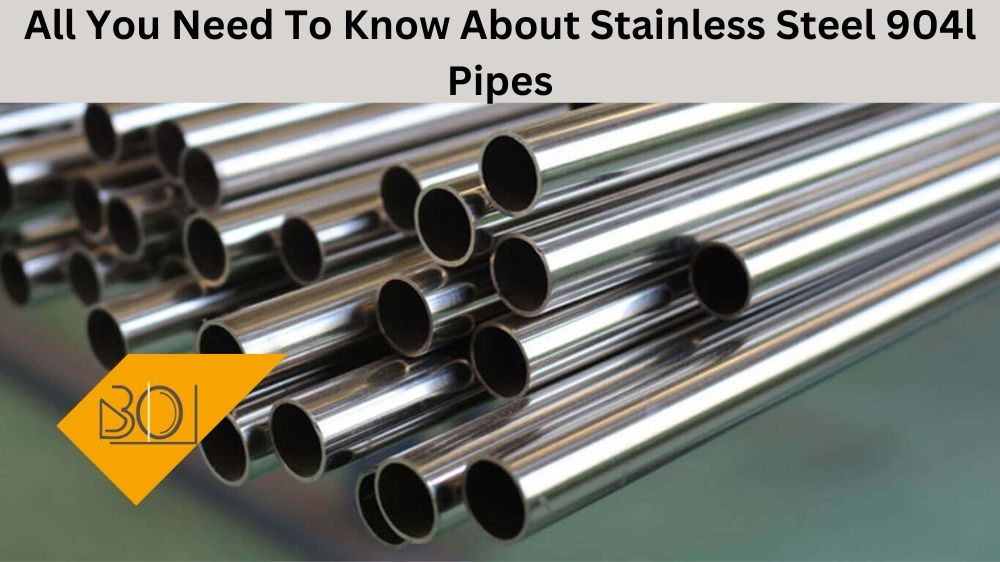Stainless steel has become one of the most popular materials in the world due to its durability, strength, and corrosion resistance properties. One of the most advanced stainless steel grades is the 904L stainless steel. This grade is commonly used in the chemical and petrochemical industries because of its outstanding properties. This blog post will discuss all you need to know about stainless steel 904L pipes.
What Are Stainless Steel 904l Pipes?
Stainless steel 904l pipes are a type of high-quality, corrosion-resistant pipe made from an alloy containing chromium, nickel, and molybdenum. They are known for their exceptional strength and durability, making them ideal for use in various industries such as oil and gas, chemical processing, and offshore exploration. These pipes can withstand extreme temperatures and harsh environments without losing their integrity. They also offer excellent pitting and crevice corrosion resistance, ensuring a longer lifespan than other pipes. In addition, Stainless Steel 904l Pipes have low carbon content, making them less prone to intergranular corrosion – a common issue with other stainless steel grades. This makes them suitable for applications involving welding or heat treatment processes. With its superior properties and wide range of uses, it’s no wonder that stainless steel 904l pipes are highly sought after in the industrial world.
Properties Of 904L Stainless Steel Pipes
904L stainless steel pipes have incredible strength and corrosion resistance properties. They are highly resistant to stress corrosion cracking, chemical attacks, and crevice corrosion. They are also capable of withstanding high temperatures and pressure. These properties make 904L stainless steel pipes the top choice for industries requiring extreme durability.
Applications Of 904L Stainless Steel Pipes
Due to their robust properties, 904L stainless steel pipes are widely used in various industries such as chemical processing, oil and gas refining, pulp and paper production, wastewater treatment, and pharmaceutical production. These industries require pipes that can withstand extreme temperatures and aggressive chemicals, which is why 904L stainless steel pipes are suitable for these applications.
Fabrication And Welding Of 904L Pipes
Due to the high nickel and molybdenum content in 904L stainless steel pipes, they are challenging to fabricate or weld. Hence, specific procedures must be followed to prevent cracking, brittleness, and corrosion. It is crucial to use the appropriate welding tools and techniques to maintain the pipes’ corrosion resistance properties.
Maintenance Of 904L Stainless Steel Pipes
Like any other equipment, 904L stainless steel pipes require proper maintenance to ensure they function properly. This includes regular cleaning to remove any dirt or particles that may cause corrosion and inspection to identify any signs of corrosion or damage. Using the correct cleaning agents is also essential to prevent the pipes from losing their corrosion-resistant properties.
Cost Considerations Of 904L Pipes
Since 904L stainless steel is a highly advanced grade of stainless steel, the cost of materials and fabrication is higher than other types of stainless steel. However, the initial cost is worth it in the long run due to the pipes’ durability, longevity, and resistance to corrosion. Good quality 904L stainless steel pipes for your industrial application are wise investments.
Conclusion
In conclusion, due to their robust properties, 904L stainless steel pipes are an excellent choice for various industries. They resist stress corrosion cracking, chemical attacks, and crevice corrosion. They are also capable of withstanding high temperatures and pressure. Though expensive, the initial cost is worth it due to the pipes’ durability, longevity, and resistance to corrosion. It is, therefore, essential to follow proper maintenance procedures. When planning to use 904L stainless steel pipes, choosing a supplier or manufacturer with experience in this type of material is crucial to ensure that the pipes are fabricated correctly to maintain their properties.

